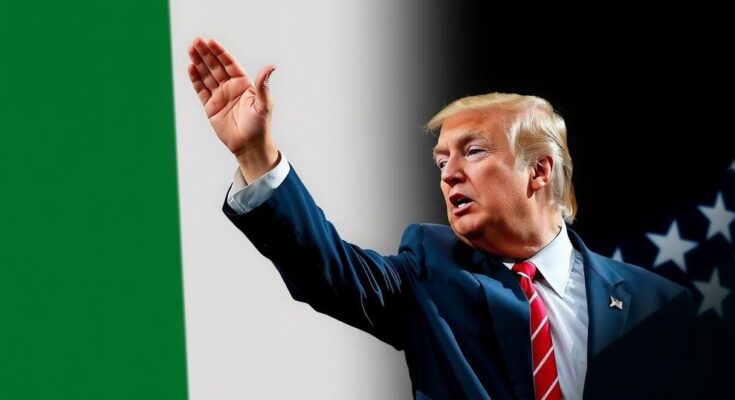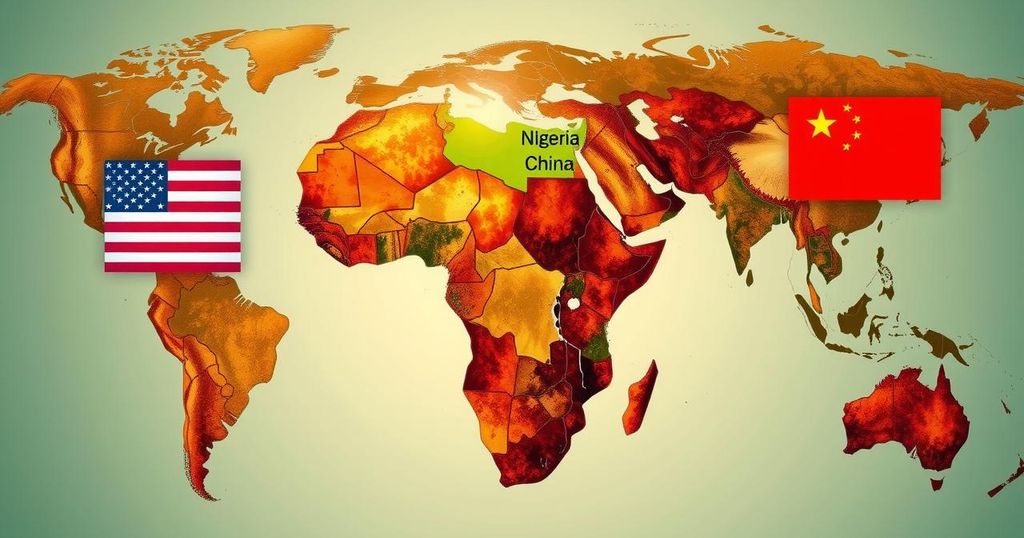Donald Trump’s recent presidential victory may have profound implications for Nigeria, with concerns over stringent immigration policies, economic tariffs, and a conservative approach to social issues. Analysts highlight potential challenges in U.S.-Africa relations, especially regarding Trump’s “America First” stance, which could diminish support for foreign nations. President Bola Tinubu’s desire for closer ties underscores the complexities ahead for Nigeria as it navigates this new political landscape.
The recent electoral victory of Donald Trump, securing his second term as president, raises significant questions regarding its implications for Nigeria and the broader African continent. In his victory speech, Trump characterized his mandate as powerful and unprecedented, vowing to usher in a new era for America. His past policies indicate a strong inclination toward non-interventionism and protectionist measures, encapsulated in his “America First” approach, which may lead to diminished U.S. support for foreign nations, including Nigeria. As analysts assess Trump’s victory, there is a concern regarding the future of U.S.-Africa relations. Prior to the election, African nations were not prominent in the campaign discussions, yet reactions from leaders across the continent reflect a cautious optimism about potential engagements. President Bola Tinubu of Nigeria expressed a desire to strengthen ties with the U.S., indicating an interest in cooperation to address global challenges. However, Trump’s history of limited engagement with Africa raises doubts about the scope and impact of future interactions. Immigration policy represents another critical area of concern. Trump has signaled a return to stringent anti-immigration measures, which may disproportionately affect undocumented Nigerians in the U.S. His commitment to mass deportations, reminiscent of his first term, could foster an environment of anxiety among those seeking refuge or better opportunities abroad. Political expert Professor Toba Alabi emphasized that Trump’s policies may send a stark message to Africans, pressuring them to prioritize development within their own nations rather than seeking refuge in America. On the economic front, Trump’s victory brings the possibility of intensified trade tariffs as he aims to protect American industries. Such tariffs could have adverse effects on Nigeria’s export markets, raising concerns among economists about the potential escalation of trade tensions. Furthermore, Trump’s focus on advancing U.S. energy production and prioritizing domestic issues could sideline Africa’s developmental aspirations, particularly for resource-dependent economies. In addition, Trump’s stance on LGBTQ rights poses a significant contrast with Nigeria’s stringent regulations on same-sex relationships. His previous comments suggest a continuation of conservative social policies, which may resonate with Nigeria’s prevailing attitudes but could limit dialogue on human rights issues.
The electoral win of Donald Trump as President of the United States marks a pivotal moment in global politics, particularly in the context of U.S.-Africa relations. Trump’s previous tenure was characterized by a focus on domestic policy, with minimal engagement with African leaders and nations. The fear of a return to divisive immigration policies and economic tariffs raises concerns for nations like Nigeria, which historically rely on diplomatic and economic support from the U.S. Additionally, Trump’s perspectives on social issues such as LGBTQ rights could lead to further polarizing effects on American foreign policy, especially in regions with contrasting cultural views.
Trump’s presidency signals a potential shift in U.S. foreign policy, with implications for Nigeria that may challenge existing expectations of support and cooperation. His stringent immigration policies, proposed economic tariffs, and conservative social stance could reshape the dynamics of bilateral relations and impact the socio-economic fabric of Nigeria. The way forward will require astute navigation by Nigerian leadership to balance national interests amidst these new electoral realities.
Original Source: www.bbc.com




